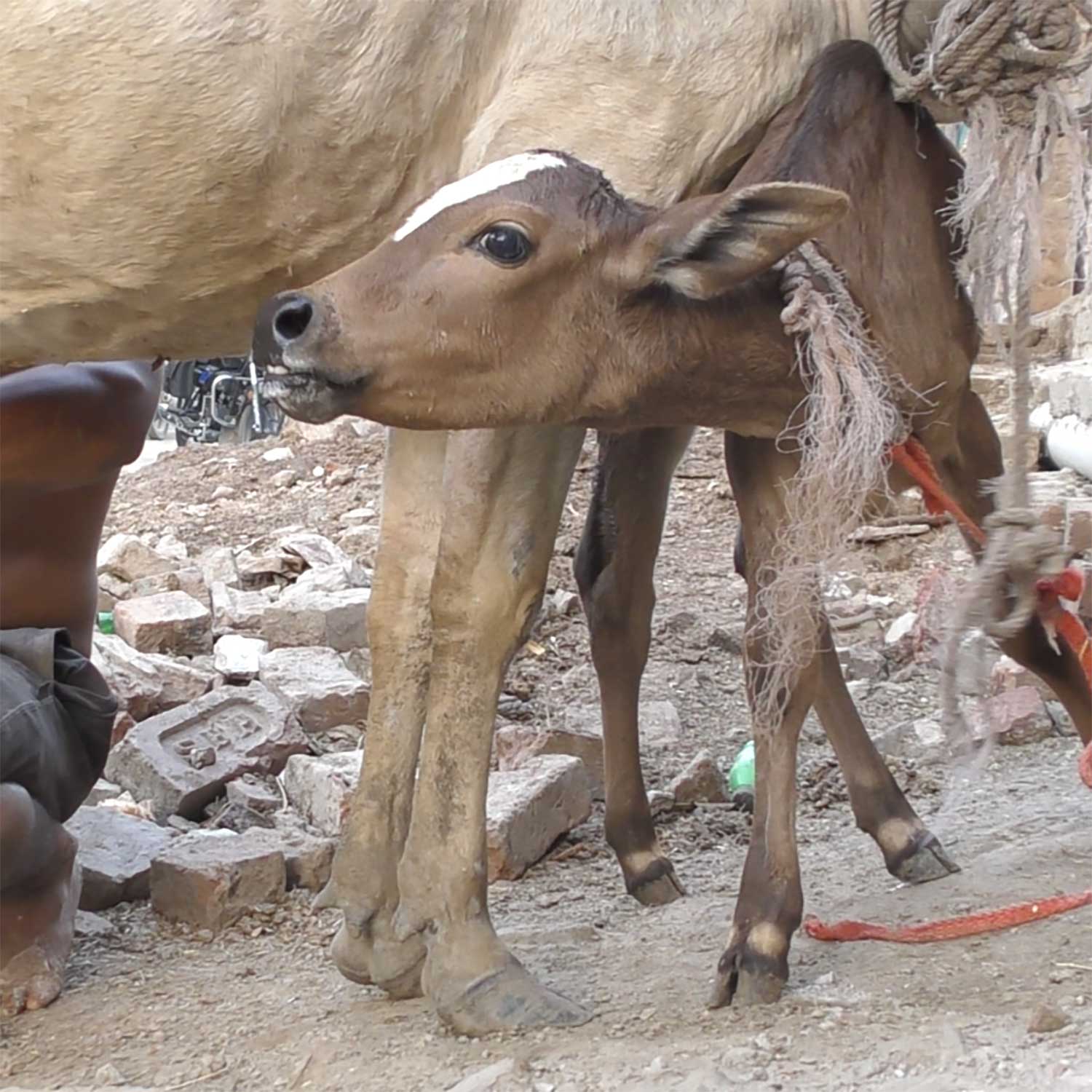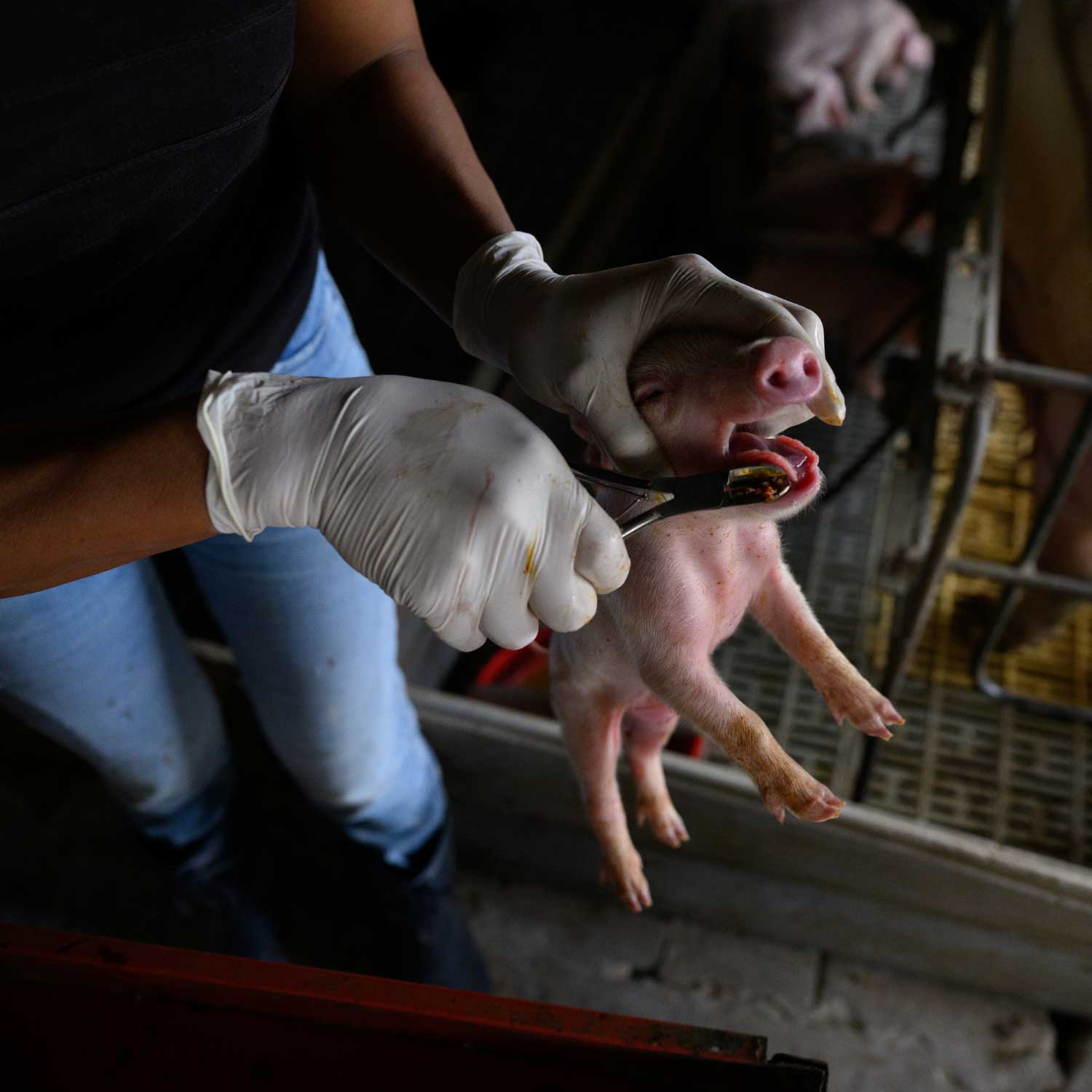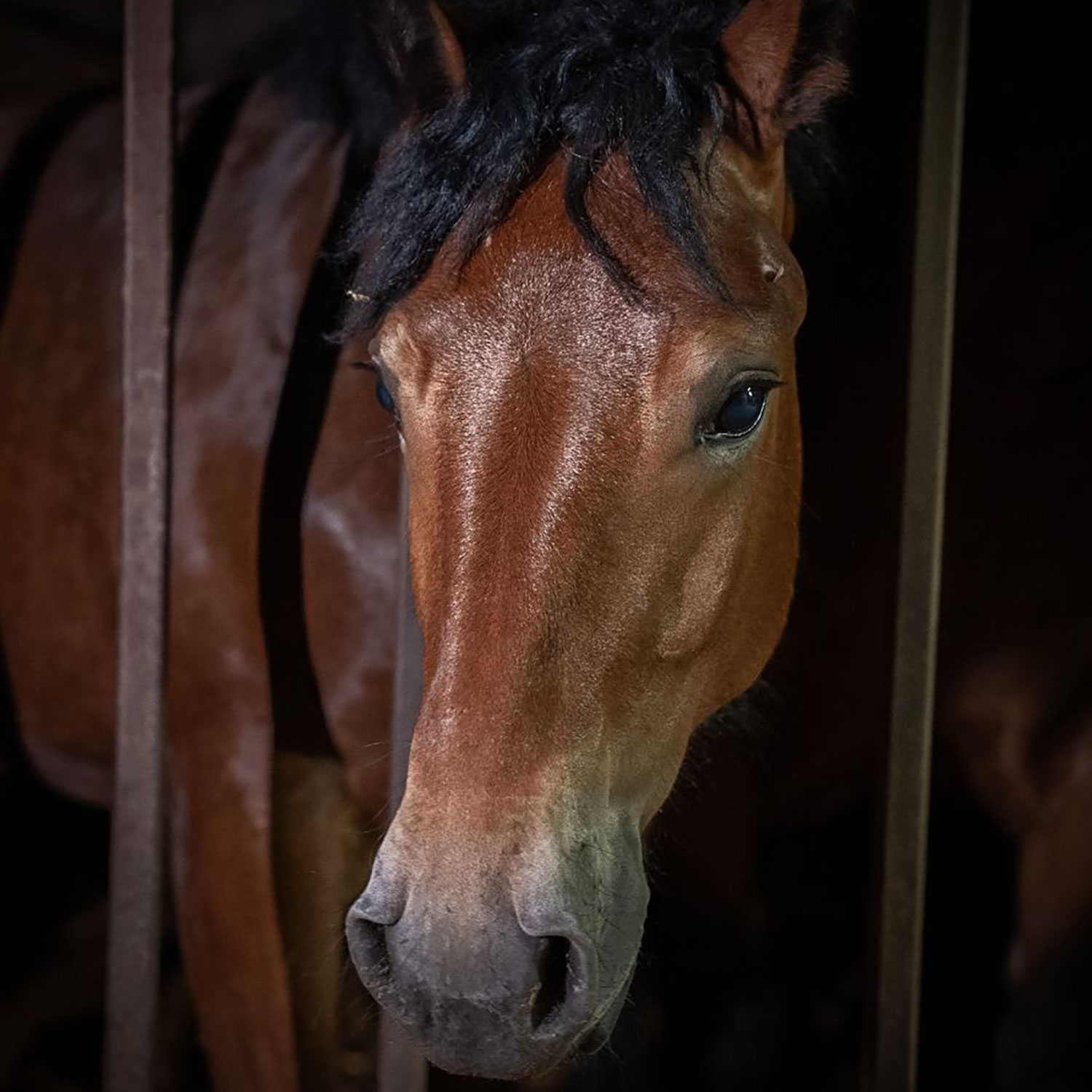Investigation: Baby Chicks Cruelly Caged on British Egg Farm
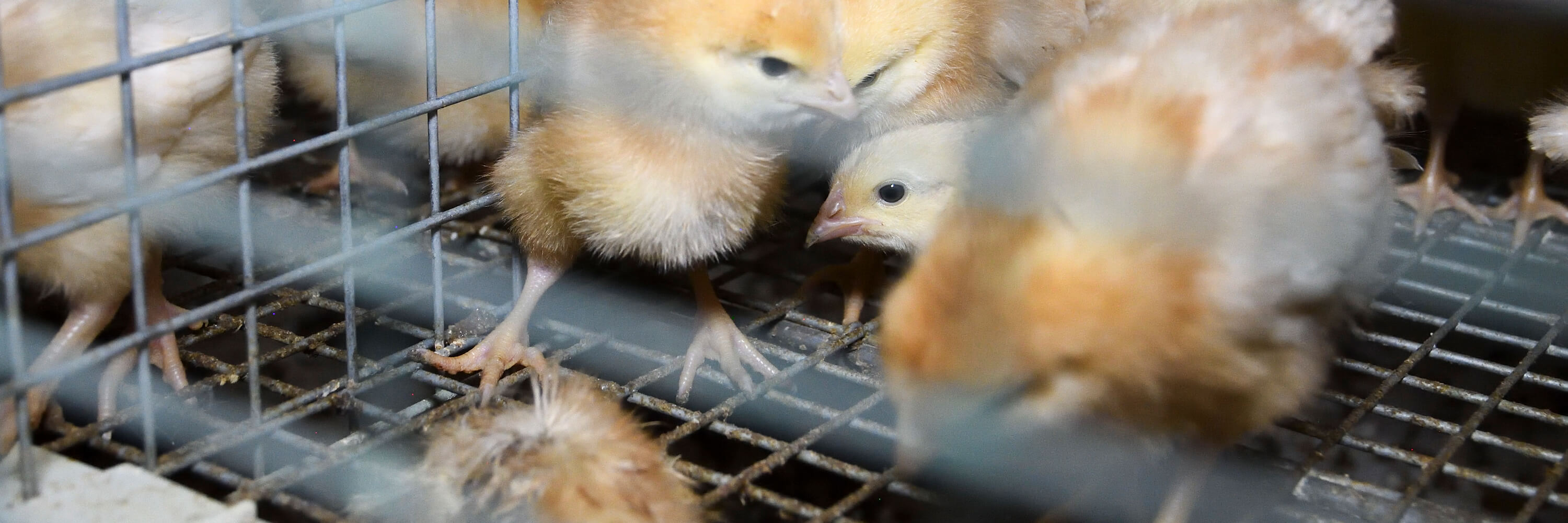
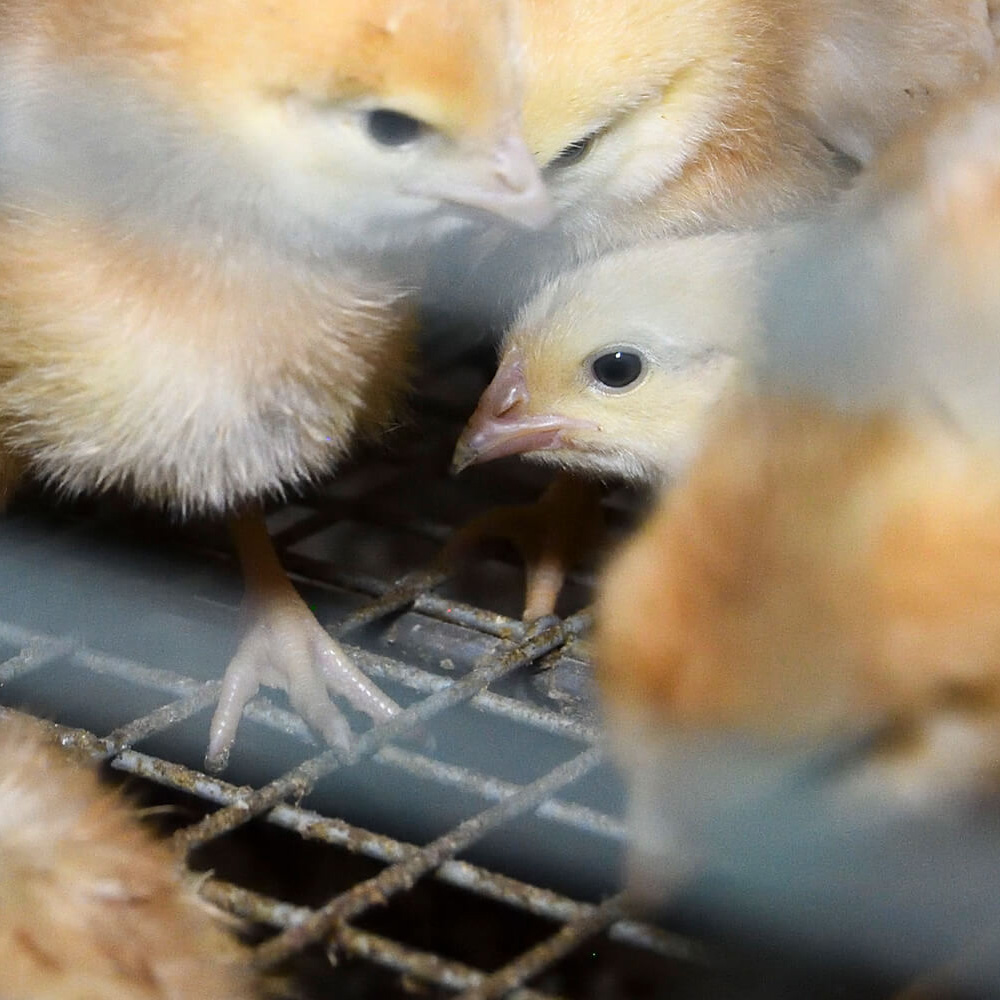
In collaboration with The Daily Mail, the UK’s most widely read newspaper, Animal Equality has today released distressing scenes of animal suffering covertly filmed inside Kinswood Eggs, an egg farm in West Sussex, England.
BACKGROUND: Animal Equality’s investigators visited Kinswood Eggs multiple times between June and September 2020. The farm, which supplies a number of UK wholesalers and local catering companies, confines around 320,000 hens who lay a staggering 72 million eggs every single year and is accredited by the ‘Laid in Britain’ quality assurance label. The footage from this investigation has been passed to Defra’s Animal and Plant Health Agency, the RSPCA, and Laid In Britain for review.
CRUEL CAGES: We found hens packed into extremely overcrowded cages, in which they each had less usable space than a letter-sized piece of paper. In these cramped, harsh conditions, it’s almost impossible for hens to carry out many of their natural behaviours. Many of these distressed birds were suffering from severe feather loss; some were almost completely bald with red, raw skin. Others didn’t survive and their bodies were left to decay in cages alongside living hens.
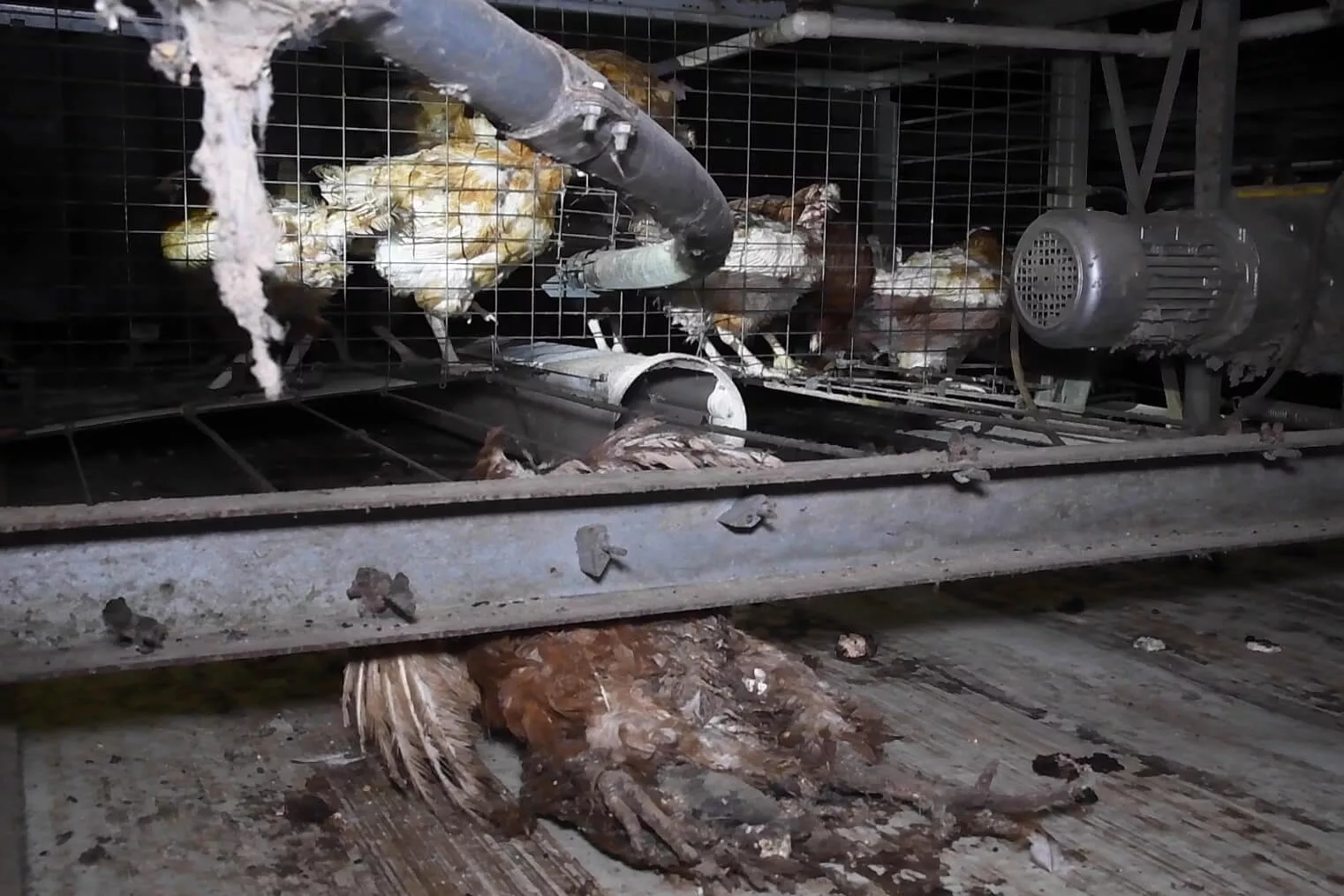
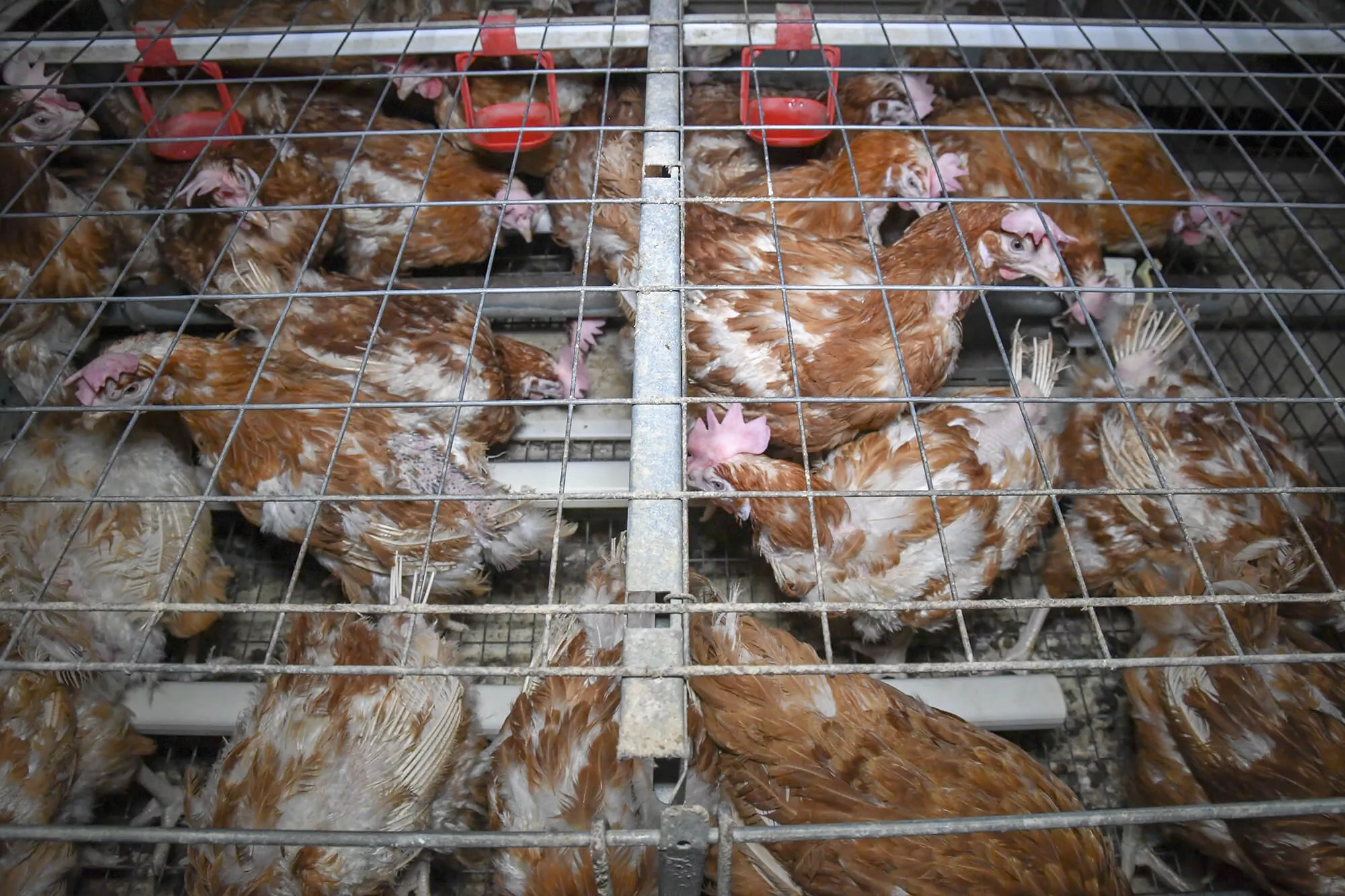
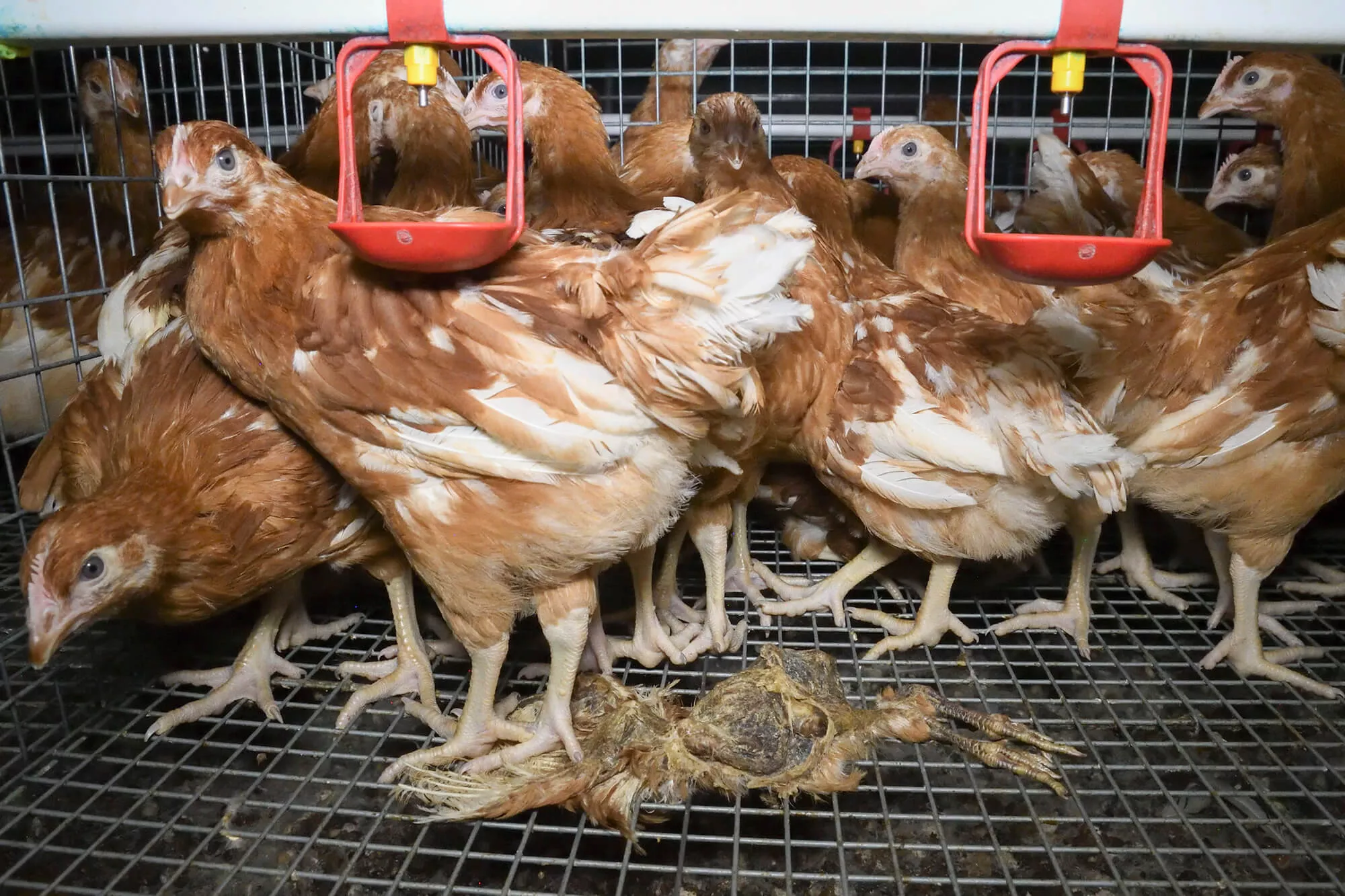
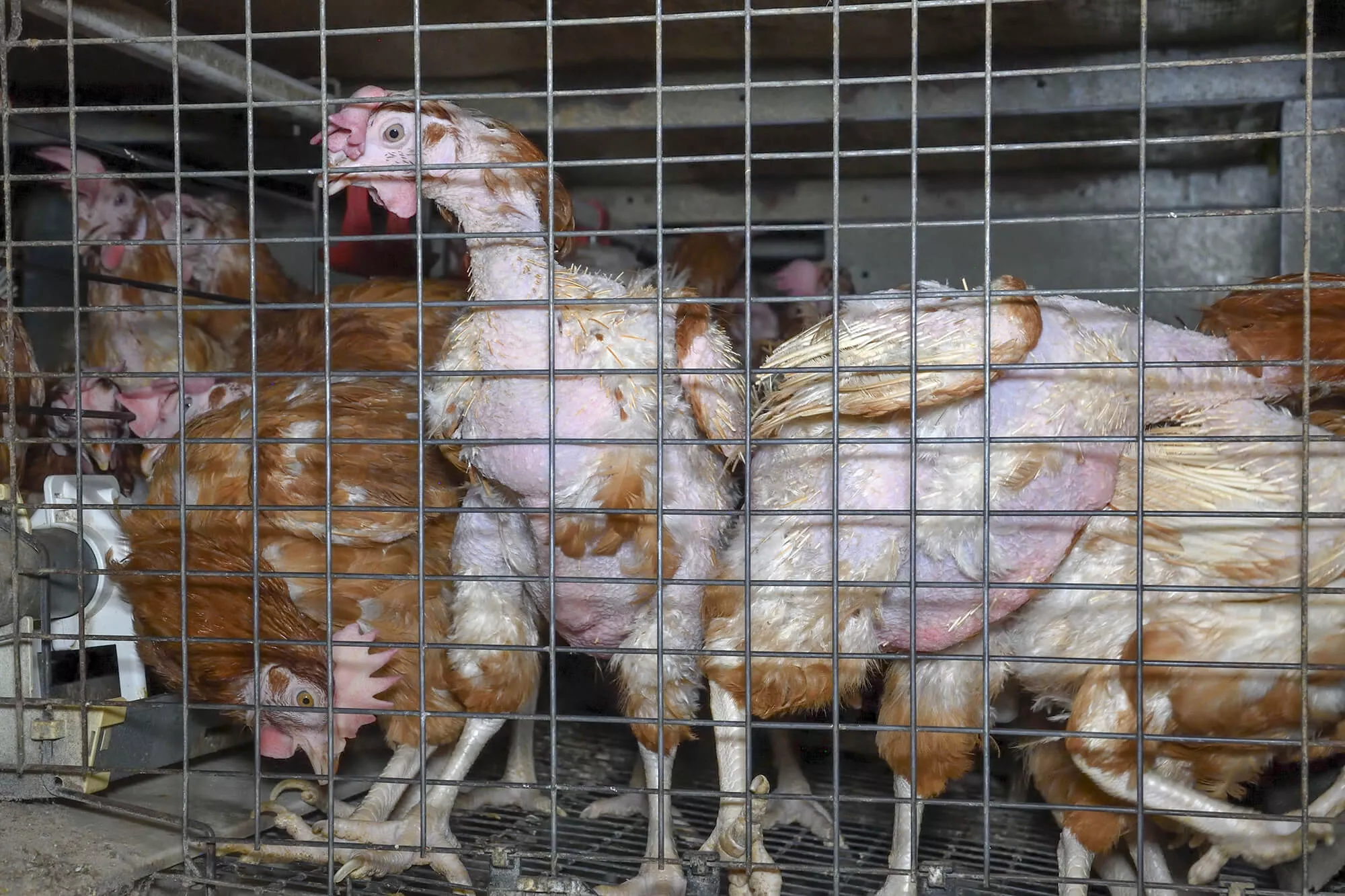
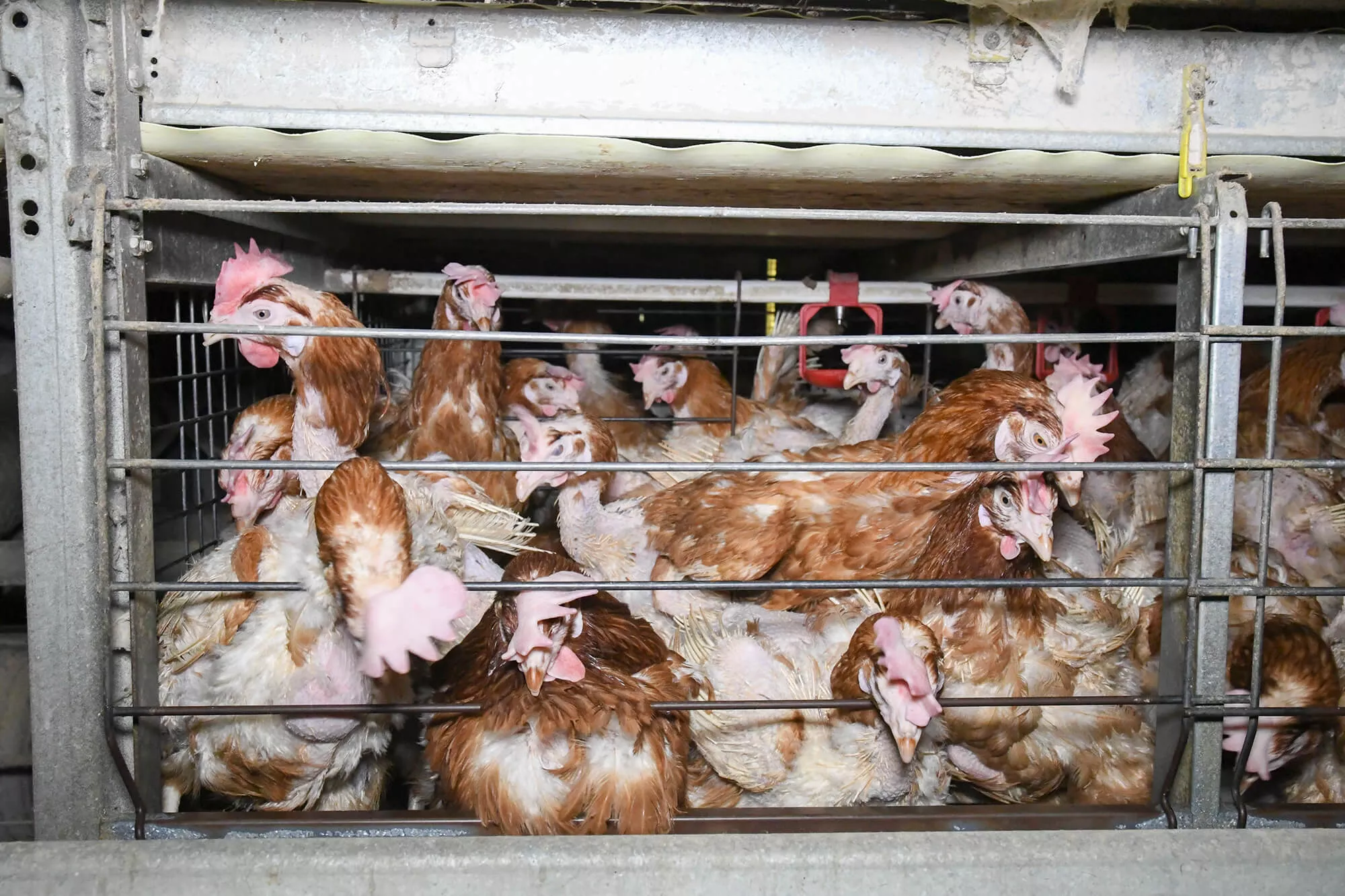
A LIFETIME OF SUFFERING: Kinswood Eggs raises chicks itself in order to save money. By keeping the birds in cages on its farm from when they are babies, the company can cut costs and strictly control all aspects of the animals’ lives to maximize the size of the eggs produced once they start laying.
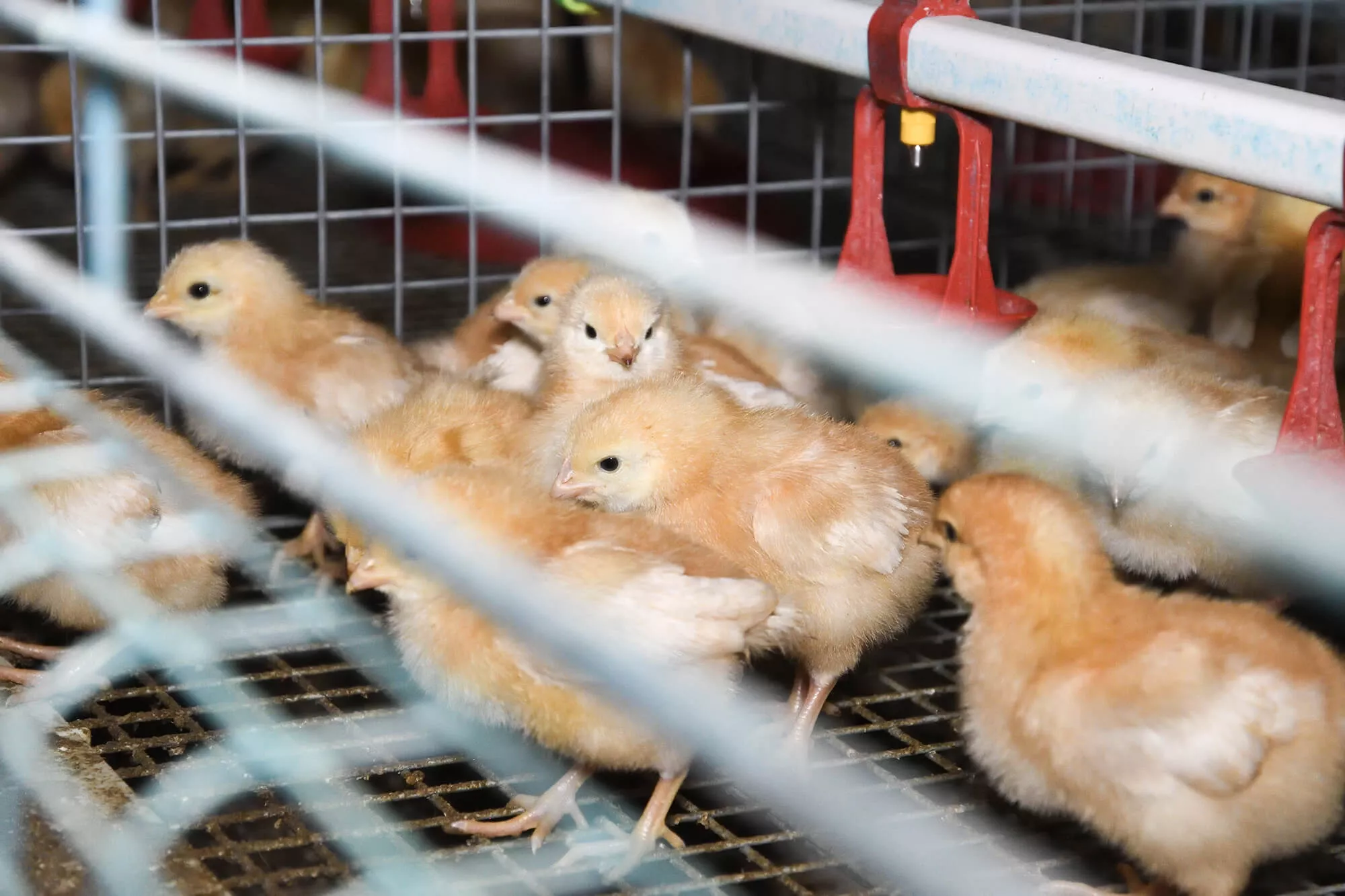
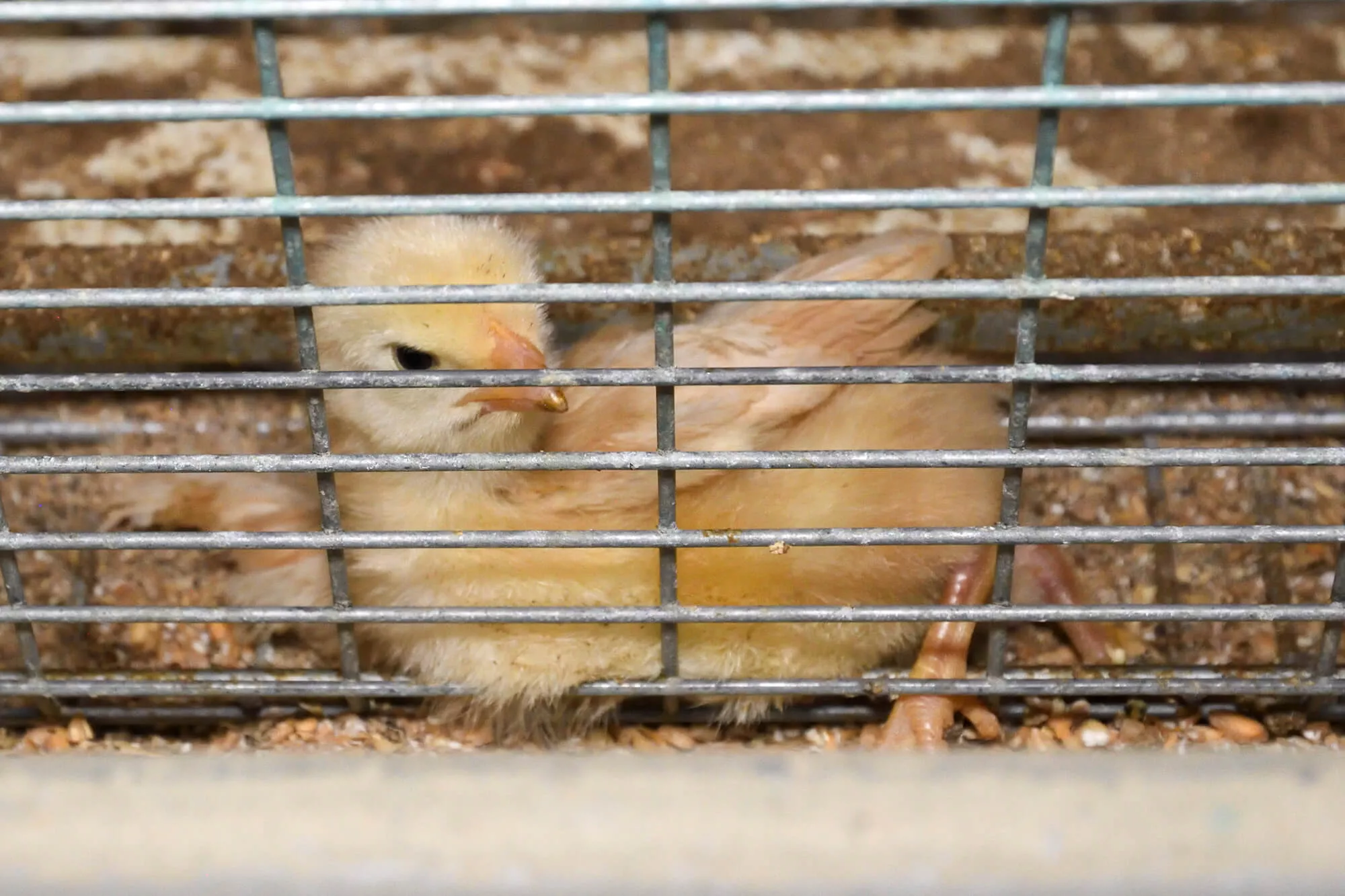
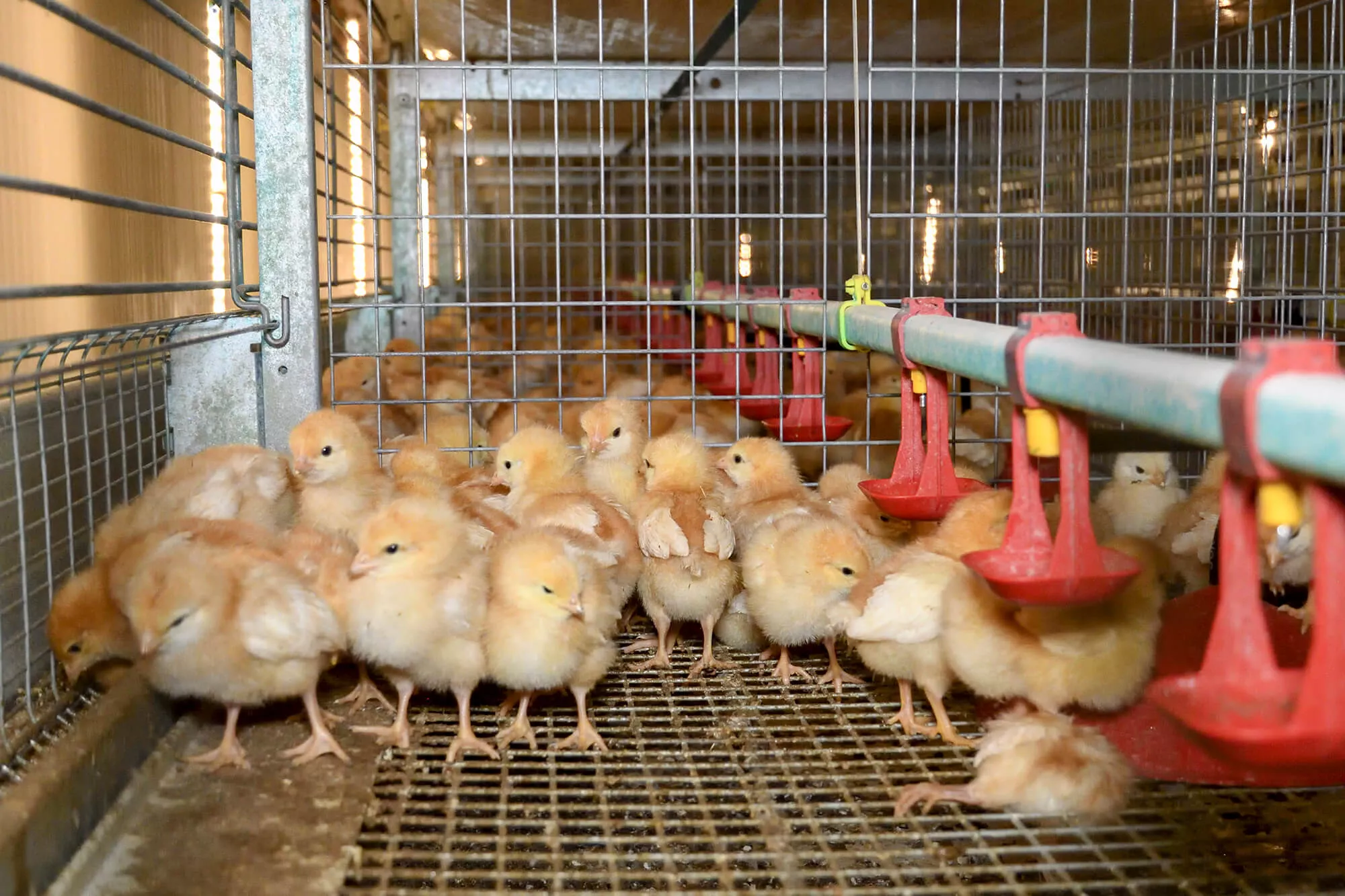
Professor Andrew Knight, Veterinary Professor of Animal Welfare and Ethics, reviewed the footage and expressed concern: “Some of these birds were so tightly packed they would have had difficulty performing highly motivated natural behaviors, such as wing-stretching and wing-flapping, causing stress and poor welfare.”
He further noted: “Also visible were a chick trapped within the wire of a cage and several dead chickens within cages… predisposing to disease and likely increasing the rodent infestation common within such farms.”
Hygiene appears to be another major problem in Kinswood Eggs. Concerningly, toxic rodent poison was scattered around the sheds, on the floor, and in broken egg cartons. We also found maggots, flies, and dead bodies of both hens and mice in bins of discarded eggs.
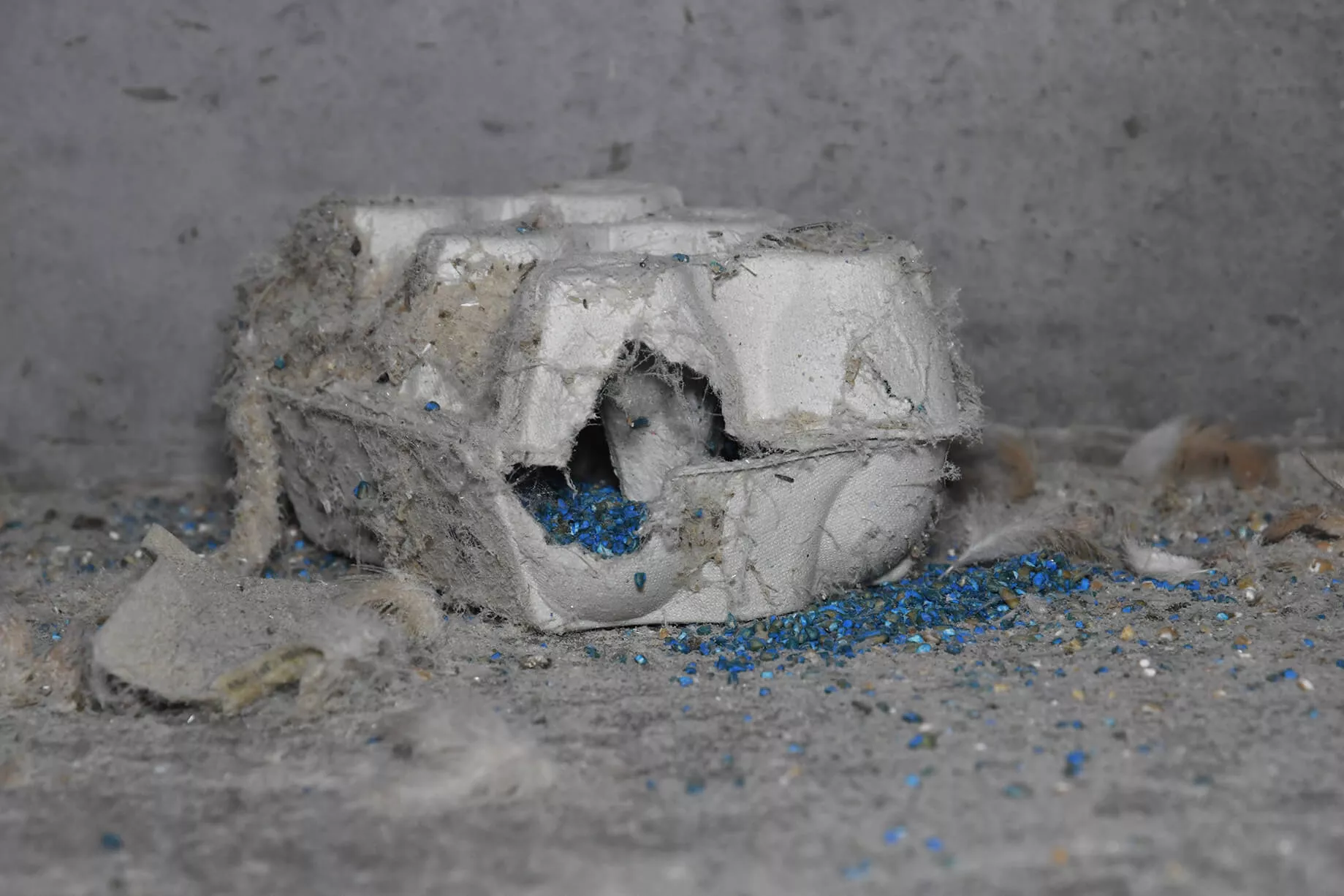
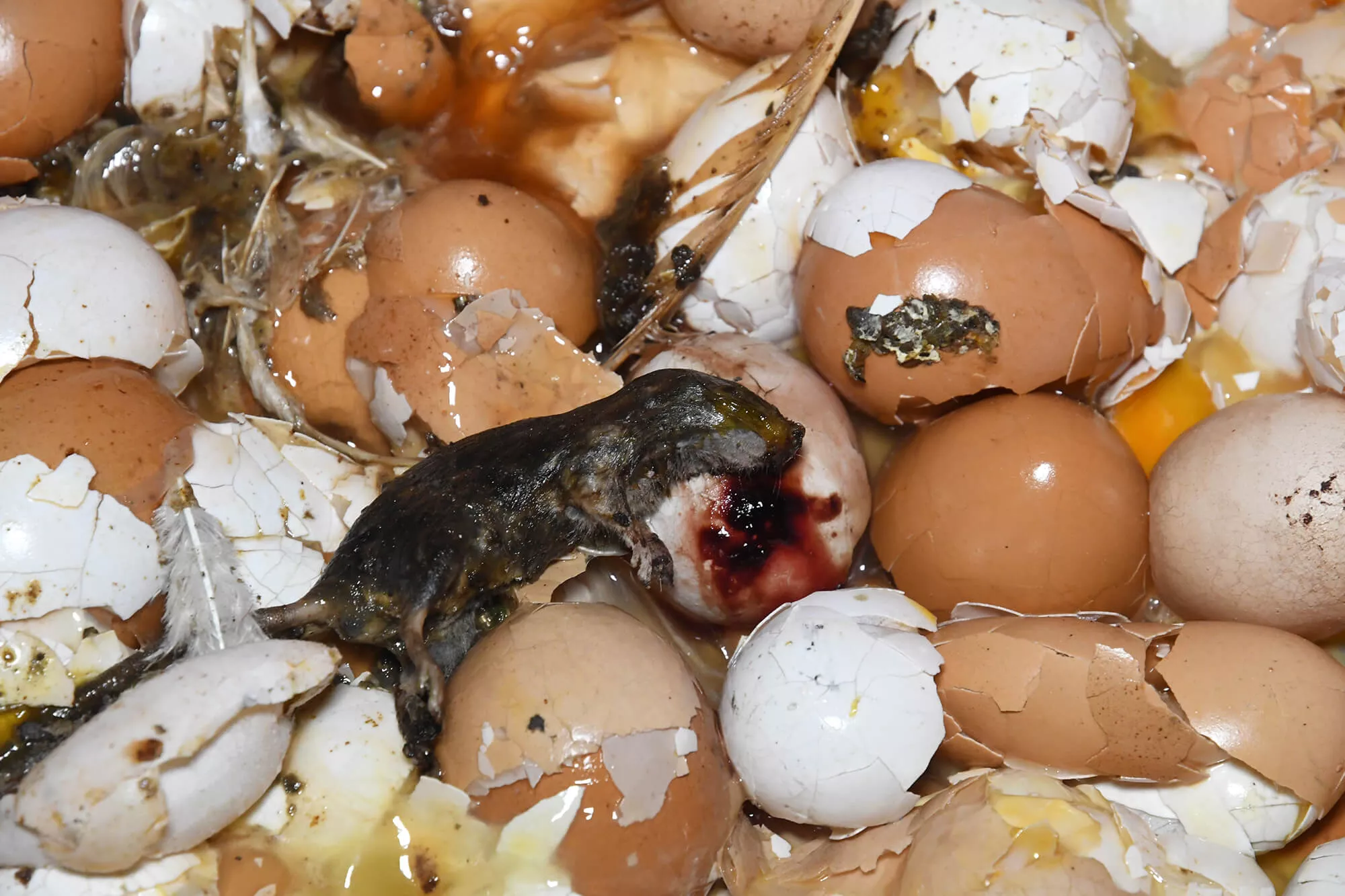
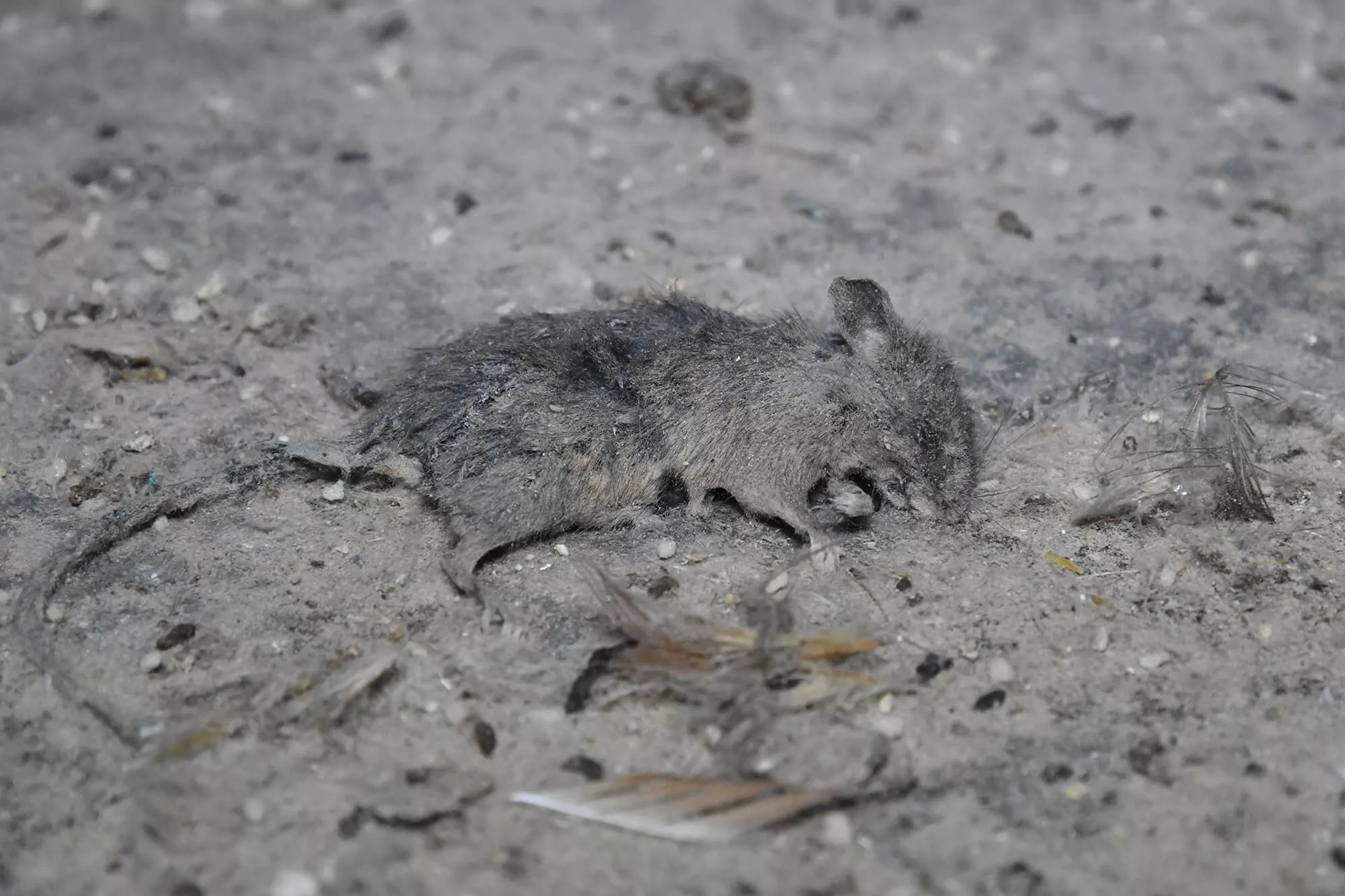
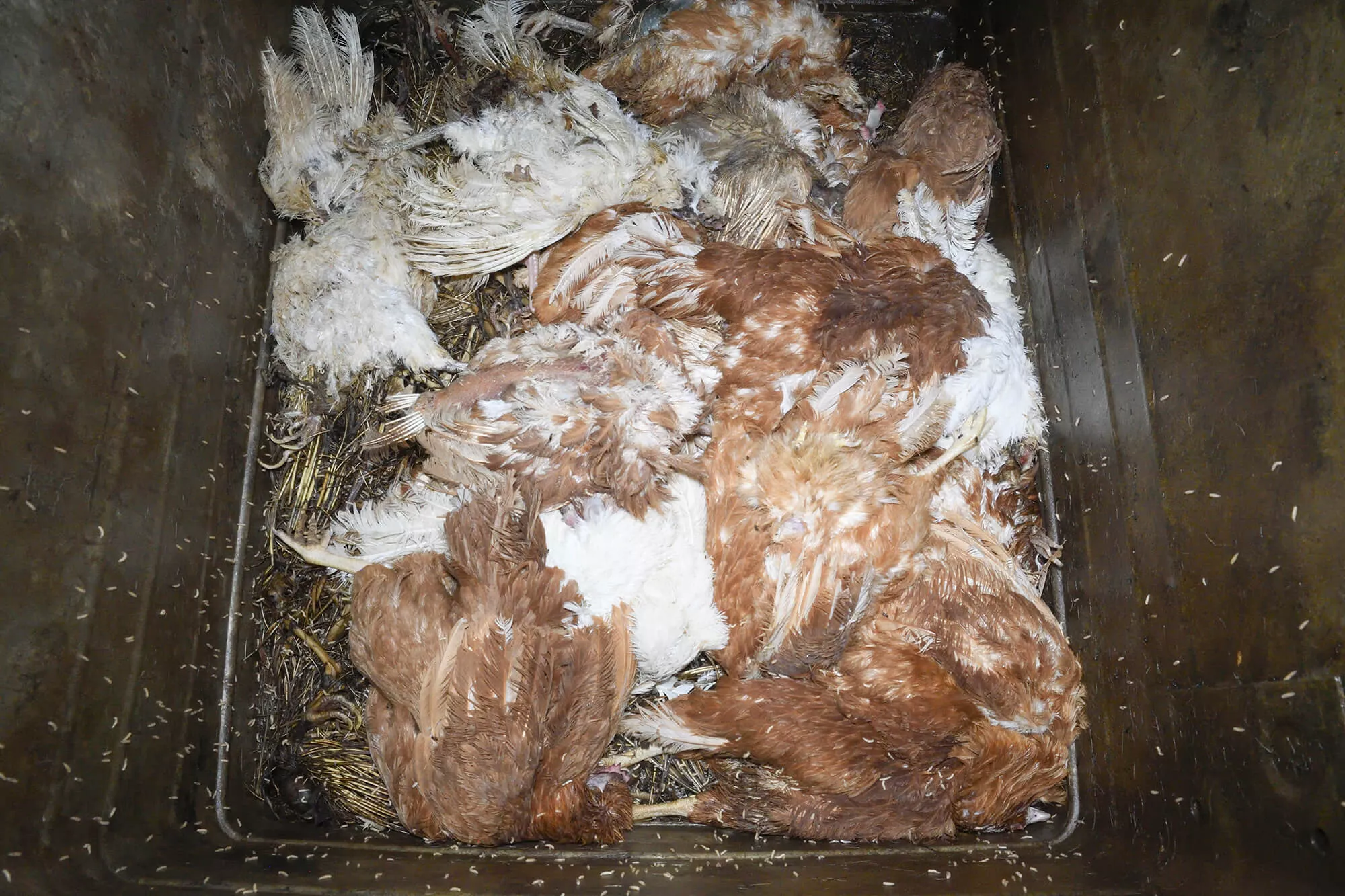
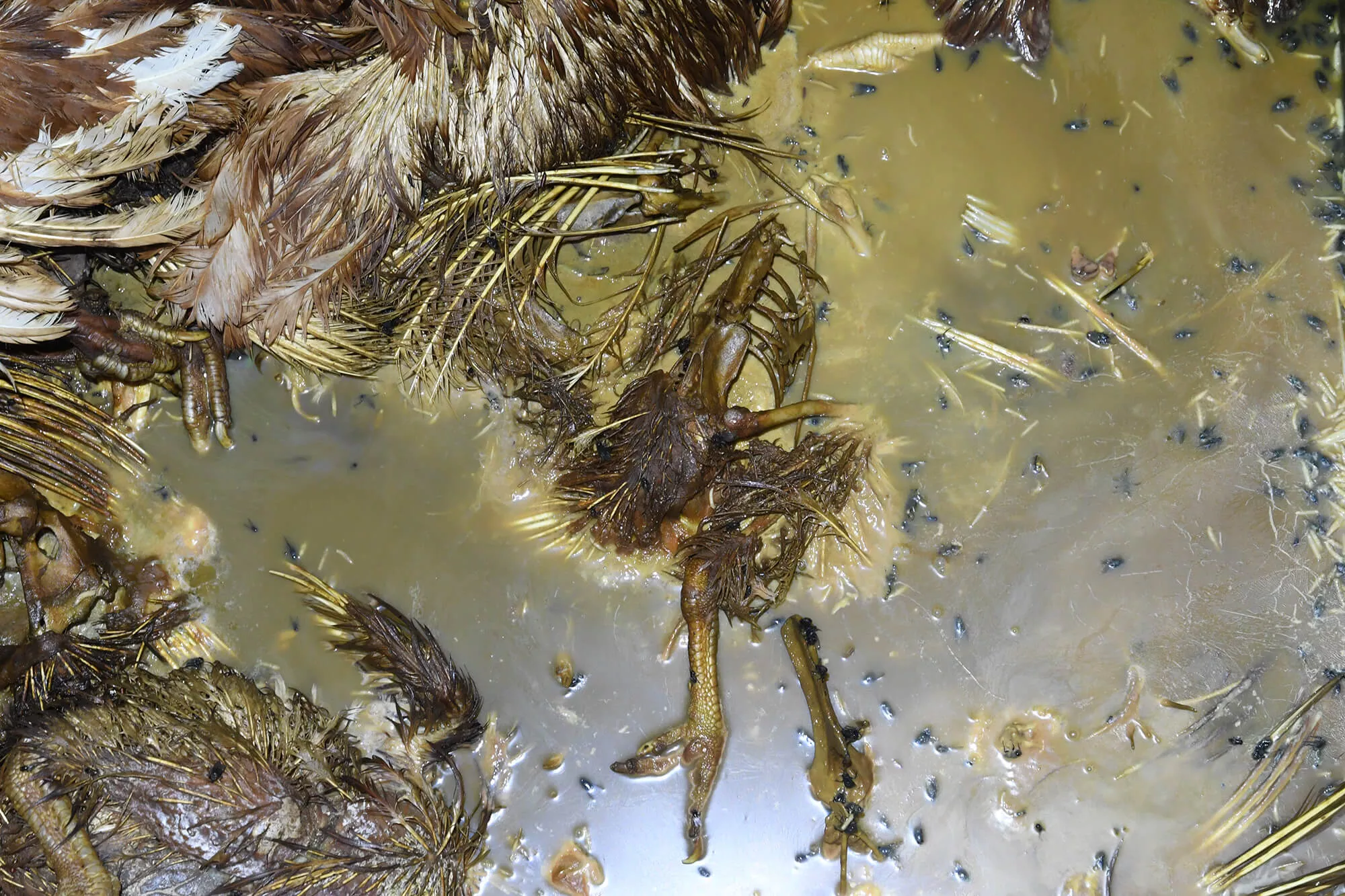
WHAT WE’RE SAYING: “Just days after birth, these fragile chicks are packed into wire cages and locked away for life. Companies like to paint a picture of happy hens lovingly laying eggs for us to eat, yet they fail to add that around 40% of UK hens are kept in cages. Cages are incredibly cruel–it’s time they’re banned.” Abigail Penny, Executive Director of Animal Equality UK
WHAT YOU CAN DO: As our numerous investigations have shown, hens used for their eggs suffer immensely in cages on factory farms. Animal Equality’s investigators are working in tandem with our education and corporate outreach departments to help expose cruelty, educate the public, and obtain corporate commitments to ban cages. You can help by sharing these important investigations, signing our petitions, and contacting your lawmakers when cage-banning legislation is proposed. And please, leave eggs and egg-products off your plate.
MAKE THE SWITCH TO PLANT-BASED TODAY

